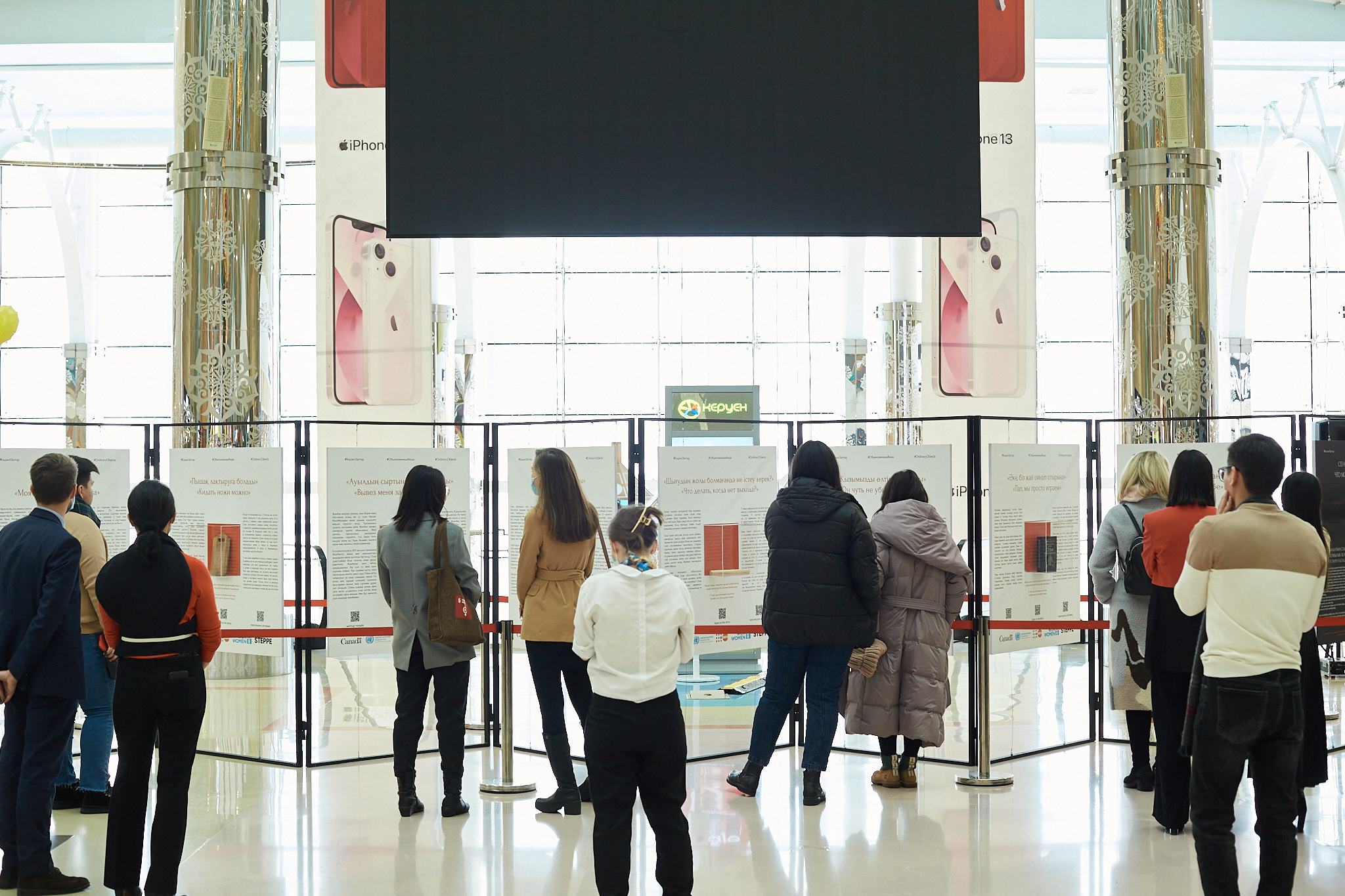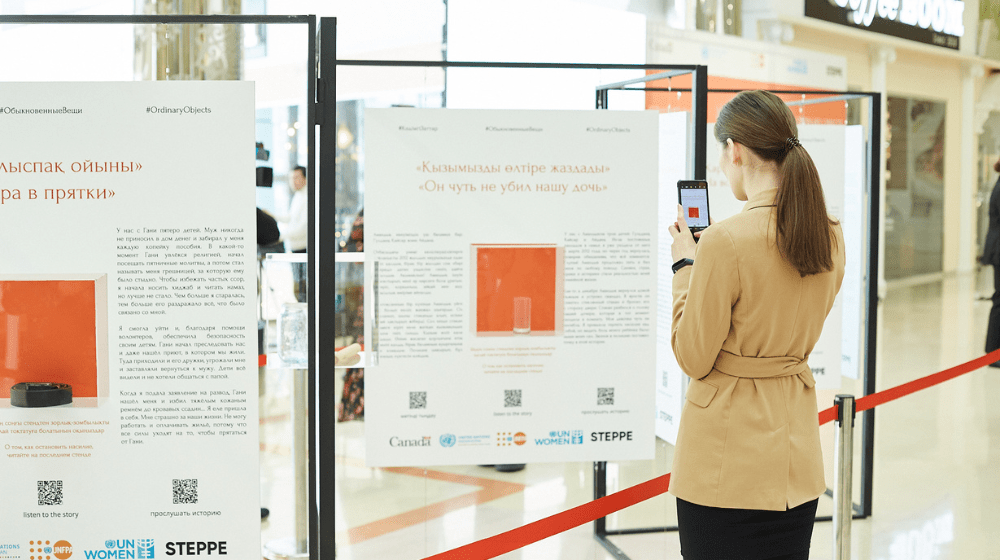On the 25th of November - right on the day of the launch of the global “16 Days of Activism” campaign, an interactive exhibition “Ordinary Objects” opened in Nur-Sultan. The exhibition showcases real stories of Kazakhstani women - survivors p domestic violence. The exhibition features 16 seemingly ordinary items: a glass, a book, a shoe. But behind each of them is a real story of a person who faced violence, and in some cases, even became a victim of it.
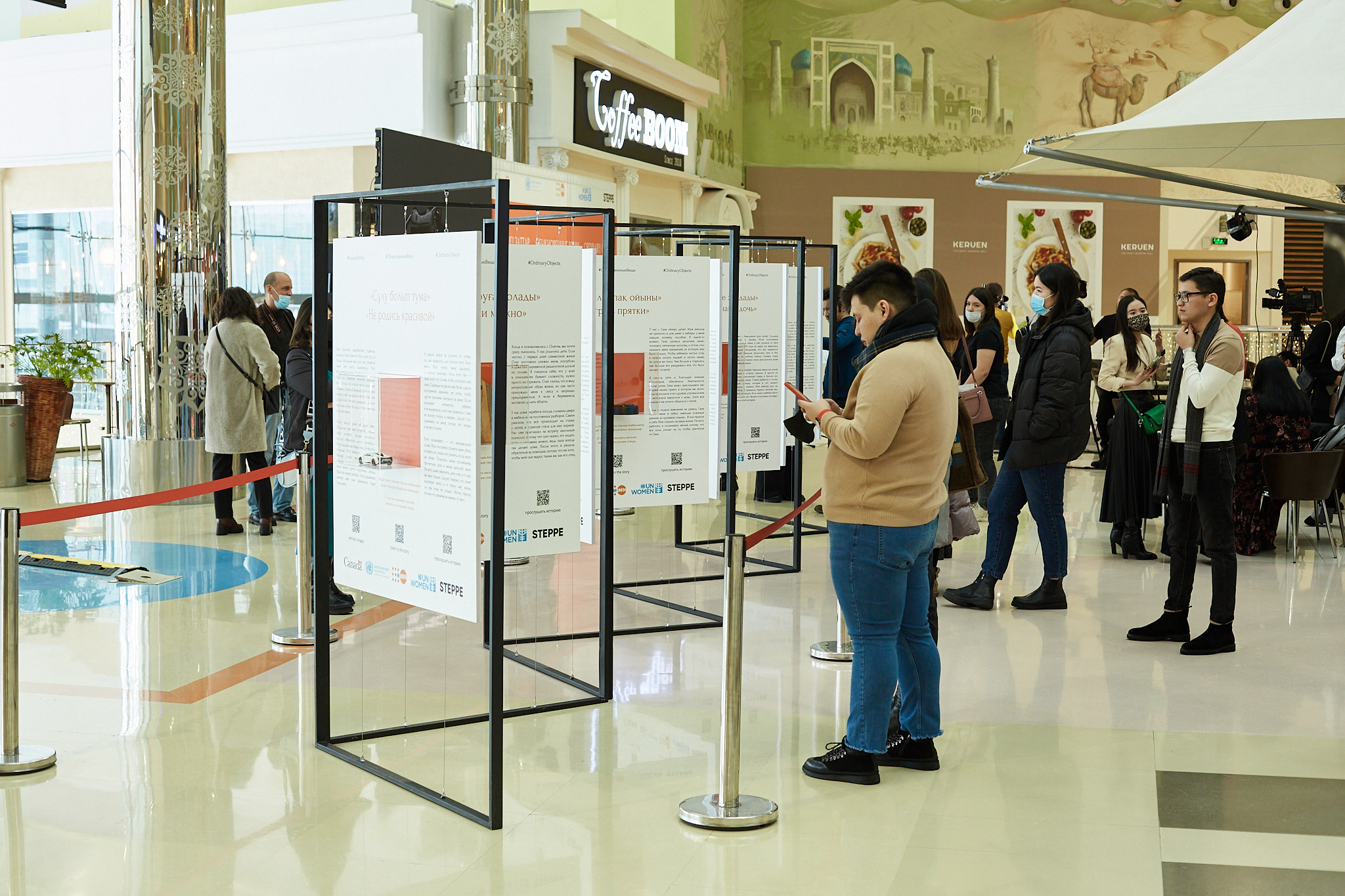
The “Ordinary Objects” exhibition is the result of cooperation between the Embassy of Canada, the Office of the UN Resident Coordinator in Kazakhstan, the United Nations Population Fund in Kazakhstan (UNFPA), UN Women, and STEPPE online publication. The purpose of the exhibition is to draw attention to the problem of domestic violence, because according to statistics, 137 women in the world die every day at the hands of their family members, and every third woman has been subjected to physical and/or sexual violence at least once in her life.
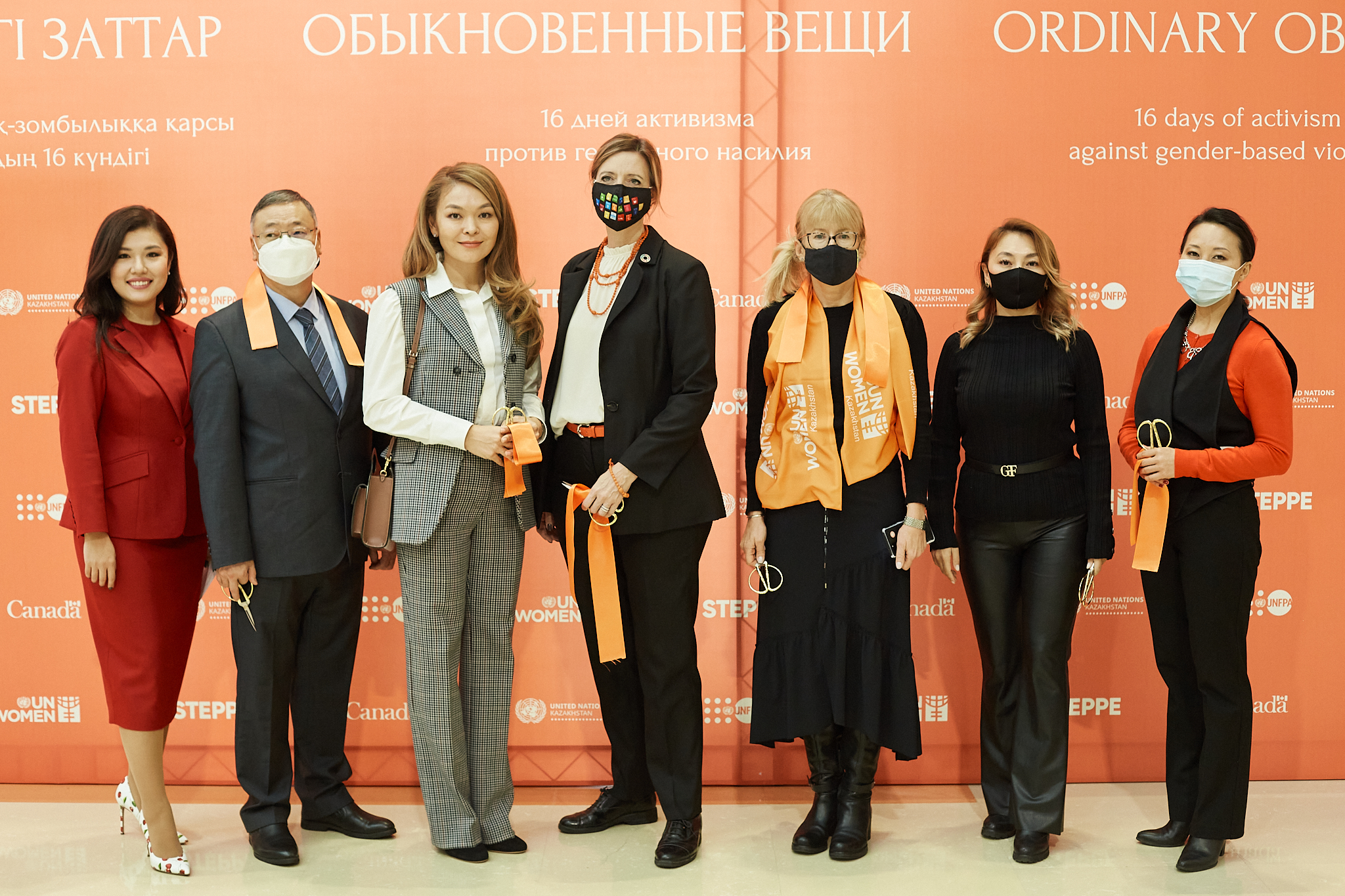
In her opening remarks, the UN Resident Coordinator in Kazakhstan, Michaela Friberg-Story, noted:
“The UN in Kazakhstan makes the prevention and redress gender-based violence as one of the key components of the COVID-19 response plan. The UN agencies are working together to advocate for the needs of survivors of violence by releasing a step-by-step “to do” guide and sharing information on best international practices with policy makers. Addressing the needs of the most vulnerable, we can get through this pandemic faster, and build more equal and resilient communities, leaving no one behind. Prevention is less costly than response”.
All the stories presented at the exhibiton are real cases of domestic violence registered in the police protocols and files of crisis centres in Kazakhstan. It was important for the organizers to make the selection of stories inclusive, as vulnerable groups of the population - children and people with disabilities - suffer from domestic violence the most.
In his speech, Raimbek Sissemaliyev, Assistant Representative of the United Nations Population Fund in Kazakhstan (UNFPA), emphasized the importance of a coordinated response to gender-based violence:
“In matters of violence, not only prevention is very important, but also response. Therefore, our organization is focusing on providing technical support to the government in establishing a national system of inter-agency coordinated response to gender-based violence, including the sectors of health, social support, police and justice.”
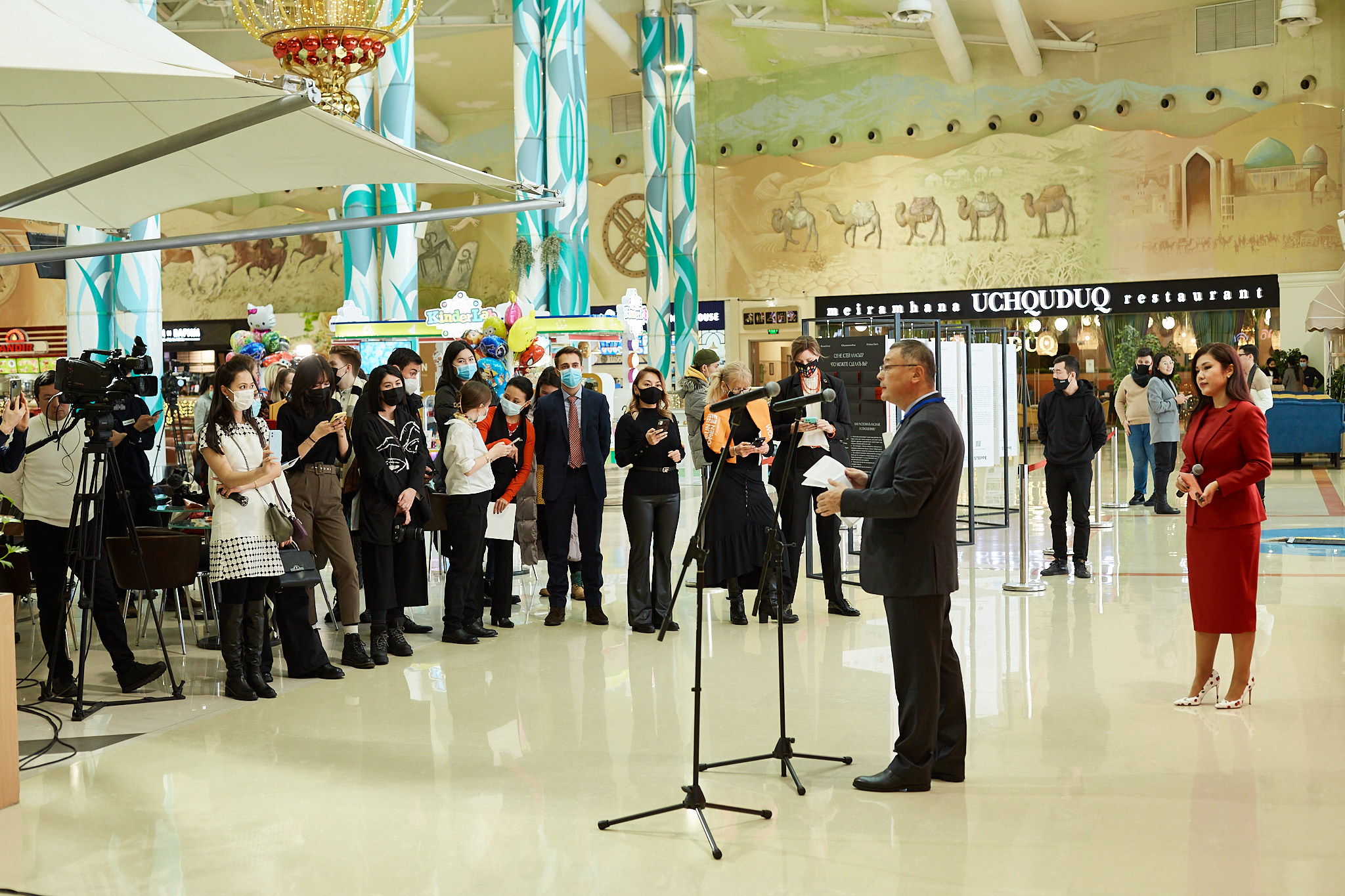
Honorary Ambassador of UNFPA in Kazakhstan Akmarzhan Kusherbayeva (KALIYA) also took part in the opening ceremony of the exhibition. In her speech, Akmarzhan noted the need for strengthening the fight against domestic violence in the country, especially in the context of an increase of such cases during the COVID-19 pandemic.
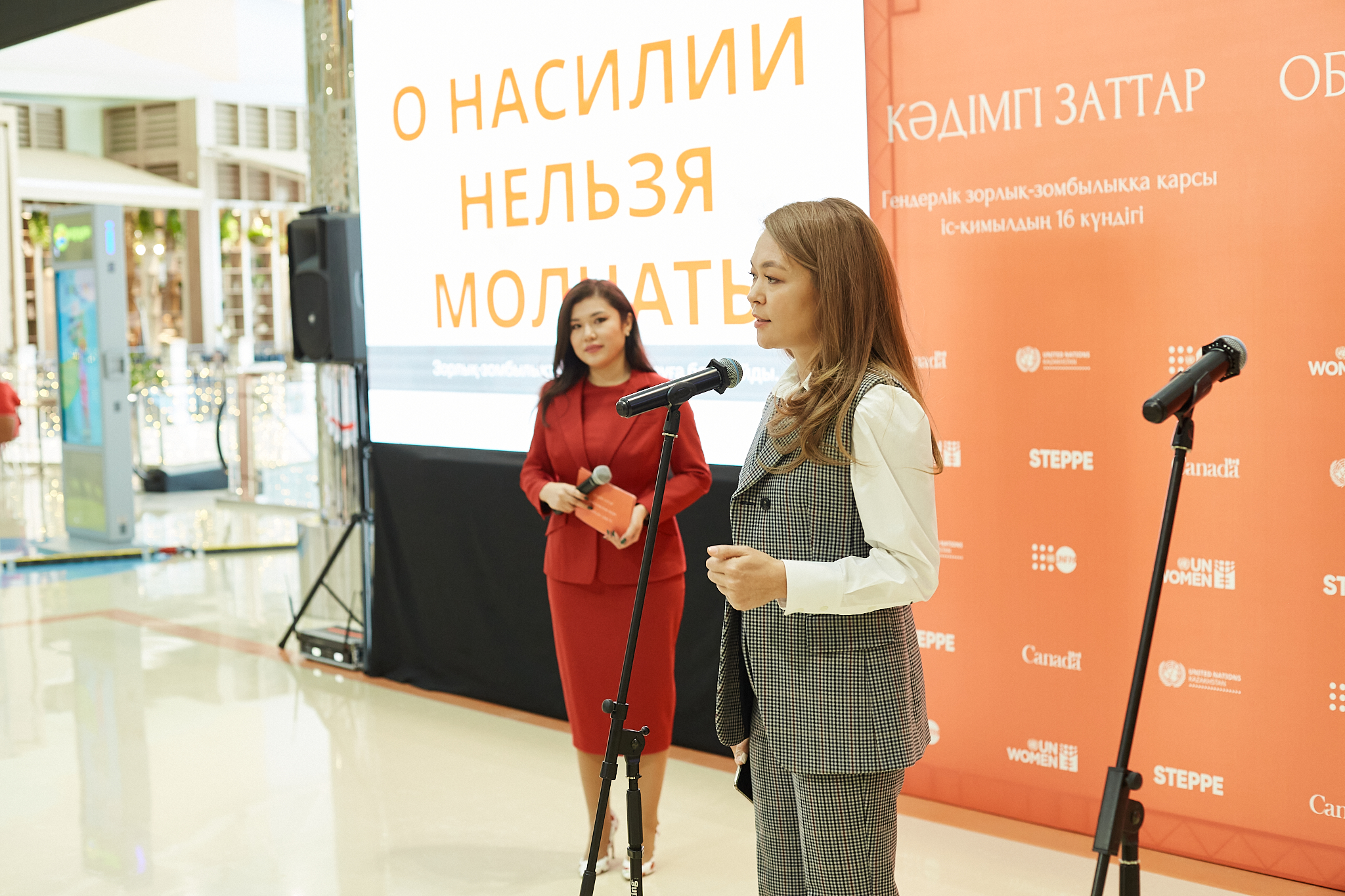
For a deeper immersion into the exhibition, the stories of each display were also available in audio format. In order to listen to the stories of the survivors in Kazakh, Russian, and English, visitors pointed cameras of their smartphones at the QR-code of each display. In addition, simultaneously with the offline exhibition, the online version of the exposition was launched on the STEPPE website (https://the-steppe.com/), where it will be available permanently.
